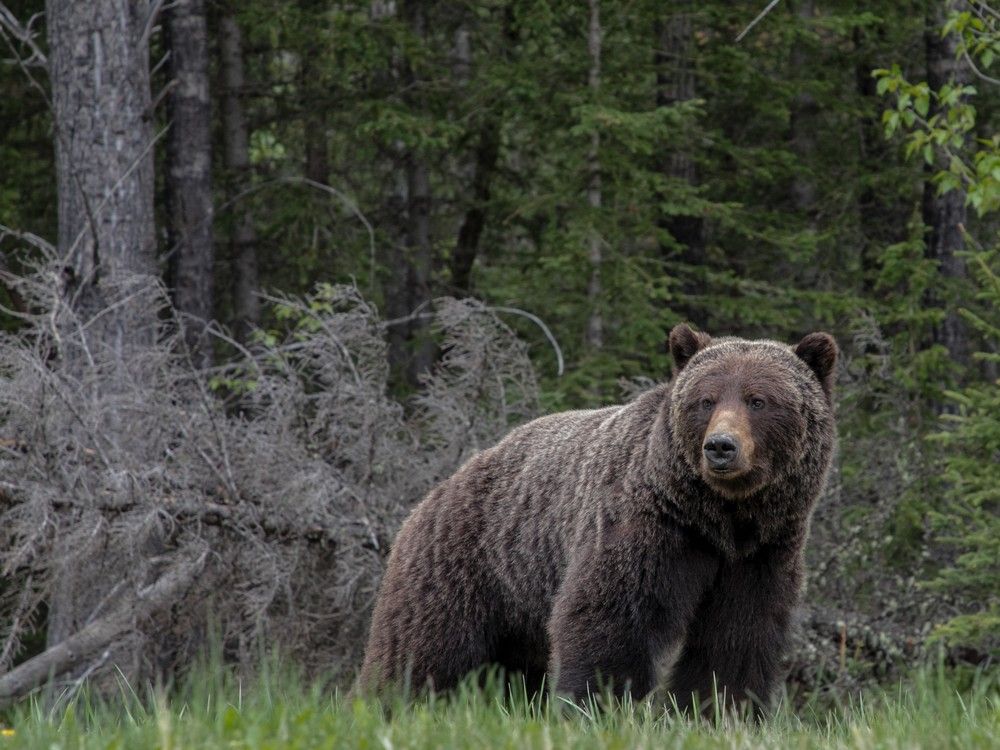![Telephones at Doug Duffy's telephone museum in Belleville, Ont. who the wide variety of styles once available. [Photo By Peter J. Thompson/National Post] Telephones at Doug Duffy's telephone museum in Belleville, Ont. who the wide variety of styles once available. [Photo By Peter J. Thompson/National Post]](data:image/svg+xml;base64,PHN2ZyB3aWR0aD0iMSIgaGVpZ2h0PSIxIiB4bWxucz0iaHR0cDovL3d3dy53My5vcmcvMjAwMC9zdmciPjwvc3ZnPg==)
It’s an ordinary, old black pay phone, its push buttons faded by decades of fingers pressing the numbers.
But I like to call it the world’s most beautiful pay phone, thanks to its front-row view of the majestic, 300-million-year-old Mount Rundle. I first stumbled across this juxtaposition of 20th-century technology and timeless nature a few years ago at a campground just outside of Banff, Alta. Sadly, when you lift the telephone receiver now, there’s no dial tone — just dead air.
Whenever I see an old, decommissioned pay phone or, even more rarely, a rotary dial phone, I’m transported to a time when the landline telephone played a major role in all our lives. I was an early adopter. So enamoured with this marvel of communication was I that for my third birthday, I asked for and received a toy version of our family’s rotary dial phone. Later, I gladly risked a tongue-lashing for the opportunity to listen in on other people’s conversations on my grandparents’ party line, their ancient wooden wall telephone a portal to the daily gossip in their rural Manitoba community.
After my dad had a teen line installed in our basement rec room, I’d jabber endlessly with my best friend, who lived right across the street. During this golden era of telephone anonymity, we also made prank calls across the city, recording our shenanigans on a cassette player, a gift from my eldest brother. We got so good at it, my friend’s parents played those recordings at adult-only house parties. (One of our biggest hits was a series of calls to downtown Winnipeg hotels on the eve of the Shrine Circus, posing as Hungarian lion tamers needing a place to stay with our “pets.”)
After high school, my entanglement with the telephone continued. As an Alberta-wide directory assistance operator, I was on the phone about 30 hours a week, reading out telephone numbers from my cubicle in a windowless downtown office space, a setting straight out of the Apple TV series
Severance
. In its early days, we “telephone girls” (a term coined in the late 19th century for the mostly female profession) would look up the numbers in phone books at our stations, but soon small computer terminals replaced paper. After my shift, which involved talking to several hundred people at about 27 seconds per call (yes, we were timed), I’d sometimes join my friends at Slack Alice, a restaurant a few blocks away. The short-lived Calgary hangout’s calling card was a landline phone at each table where you rang up your fellow diners, a kind of analog version of today’s dating apps.
These were unimaginable dinosaur days, where the telephone was plugged into a wall, the wires inside leading to an outside telephone wire, reaching from the house to telephone poles, which would then connect us with the outside world. Today’s younger digital natives can hardly fathom a phone that is only as mobile as the length of an extension cord. They may have seen a rotary dial phone on the hit TV series
Stranger Things
, but might be stumped by how to operate one. While a smartphone has a voice-to-voice conversation function, like its predecessor the landline, why talk when you can text?
Still, today’s cellular freedom is evolution of the technology their parents and grandparents knew. That wired communication world we experienced for a good century will soon be no more, as more people choose cellular service over landlines, and aging copper phone lines get replaced by VoIP (Voice over Internet Protocol). In other words, even if you still covet your landline phone, it won’t be the same, ever again.
This story, then, serves as a tribute to a beloved bygone era as the telephone we once knew heads toward history’s round file.
Bell vs. Meucci
For the technology that dominated much of 20th-century life, we have a Scottish-Canadian-American to thank. After all,
Alexander Graham Bell
was the first to get a U.S. patent approved, on March 7, 1876. He wasn’t the only one, however, experimenting with how to send vocal sounds along a telegraph wave; several wily aspiring inventors hoped to exploit the telegraph cables pumping out Morse code across the United States.
“The telegraph was the first technological miracle,” says Bob Thompson, director of the Bleier Center for Television and Popular Culture at Syracuse University in Syracuse, N.Y. “Before that, any message could only go as fast as you could physically carry it. The telephone was the second miracle.”
The controversy over just who was the true inventor of this second 19th-century technological miracle — Bell, Elisha Gray, Antonio Meucci or a number of others — has raged right into the 21st century. In 2002, the U.S. Congress passed a resolution that “the life and achievements of
Antonio Meucci
should be recognized, and his work in the invention of the telephone should be acknowledged.” Ten days later, Canada’s House of Commons passed a motion declaring Bell, a one-time resident of our country, the telephone’s rightful inventor.
Then there’s science journalist Seth Shulman’s The Telephone Gambit, which lays out a convincing case that Bell likely swiped Gray’s idea, in what Shulman calls “one of the most consequential thefts in history.” More recently, Benjamin Brown, professor emeritus of physics at Marquette University, in the 2020 proceedings of the Institute of Electrical and Electronics Engineers, published a paper entitled, “The Bell Versus Gray Telephone Dispute: Resolving a 144-year-old Controversy.” It made yet another compelling case, this time for Bell.
For now, let’s stick with the then-29-year-old Edinburgh-born Bell, who did manage to get that U.S patent ahead of the pack. Thankfully, Bell’s suggestion to answer a ringing telephone with the nautical “Ahoy-hoy” wasn’t as successful. While that phrase would later live on in the popular animated TV series The Simpsons, it was Bell’s friend and sometimes adversary, Thomas Edison, who insisted on “Hello” as the default greeting. Bell didn’t use either on his first telephone call in Boston on March 10, 1876, when he called his assistant Thomas A. Watson in an adjacent room, simply saying, “Mr. Watson — come here — I want to see you.”
Not everyone was immediately smitten with the brave new world of telephony. U.S. president Rutherford B. Hayes responded to Bell’s demonstration for him by saying, “That’s an amazing invention, but who would ever want to use one of them?” On Oct. 6, 1877, the popular science magazine Scientific American described Bell’s invention as nothing more than a “beautiful scientific toy.” Prime minister Alexander Mackenzie ordered it removed from Rideau Hall not long after its installation in late 1877, a decision overruled by Lady Dufferin, wife of the governor general. The amateur singer, having regaled her friends over the crackling line, was already sold on its entertainment value.
Others had a downright utopian view of the new invention. In his 1910 book The History of the Telephone, Herbert N. Casson said the device not only “marvellously extended the facilities of conversation,” it also altered the urban landscape, making such developments as skyscrapers possible. “It has literally abolished the isolation of separate families and has made us members of one great family,” the Canadian author, a former Methodist minister, stated with evangelical fervour. “It has become truly an organ of the social body.”
Claude Fischer advises anyone reading early writings about the telephone to take such glowing pronouncements with a grain, even a pound, of salt. “It didn’t really change American life, but people adopted and adapted the technology to pursue culture ends that they would have pursued anyway,” says Fischer, a professor of sociology at the University of California, Berkeley and author of the book America Calling: A Social History of the Telephone to 1940. Everyday activities that were cumbersome before, such as arranging meetups with friends, says Fischer, were made much easier thanks to the telephone. “It became sort of part of the furniture in a home.”
He also doubts the assertion that it radically altered the urban landscape, although the telephone did cut into the roles of messenger and “errand boy,” jobs that would return with a vengeance a century later with the proliferation of online delivery businesses such as Amazon and Skip The Dishes. “They already had pneumatic tubes,” Fischer says, referring to the transport system for documents and other items built into many office structures. Those writing about the telephone were often mere mouthpieces, he says, for the telephone companies. “They weren’t interested in publicizing things that did not make the industry look good.”
Despite the avalanche of early favourable reviews, the telephone elicited deep suspicion in certain quarters. Some feared electric shock by merely touching the new device. Others complained that it would be the death of letter writing, a tool for criminality, and a way to seduce wives and teenage daughters. “There was a concern expressed that when a man went to work and a wife was at home, there was no screening of who might approach her,” says Fischer, who adds that people also worried about the lack of privacy from party lines, those early shared lines (hooked up to the same local network) that could be used by several households. “Some wrote about telephones creating a nervous state of mind from the ringing and constant interruptions.”
Still, the die was cast. In 1877, the first white pages phone directory was published in the United States. A one-pager printed on cardboard with 50 Connecticut names but no phone numbers — the operator would connect you — it would spawn generations of both white- and yellow-page books, providing a historical record of sorts. That same year, the New York Telephone Company published a booklet entitled Winning Friends by Telephone, telling readers that, “The voice with the smile wins.”
Women ‘forbidden to use the phone’
Fast-forward a few decades, and the telephone was now part of the fabric of daily life. By the 1940s, nearly half of Americans had a landline in their household; in Canada, just over 20 per cent. That first one-page phone directory had spread across the continent, and, in bigger markets, the pages numbered in the hundreds, this time with numbers and addresses attached. At the lick of a finger, the Yellow Pages helped you find a butcher, a baker or a candlestick maker.
The technology first touted as a boon for business was an indispensable home item. The early days of needing a switchboard operator to help place every call had been replaced by automatic switchboards (you still needed “0” operators to connect long-distance calls), and many of the fears about the downfall of society hadn’t materialized, even though scammers and pranksters proliferated (“Is your refrigerator running? Then you better go catch it!”). Thanks to the laying of underwater transatlantic cables, you could call Grandma in Liverpool as easily as your next-door neighbour, albeit at astronomical long-distance prices that wouldn’t come down until late in the 20th century.
While the black rotary-dial landline had long since replaced the upright candlestick model and the hand-cranked, wooden wall version, this era was on the cusp of a design explosion. Different colours for phones, a development often marketed to women, were on the horizon. It was a full-circle moment for half the population, who in the telephone’s earliest days were shut out from the action. “At the beginning, women were forbidden to use the phone,” wrote Michele Martin in her book Hello Central? Gender, Culture and Resistance in the Formation of Telephone Systems. “Business was supposed to have the priority.”
By 1959, that attitude was all but a dim memory when the Princess Telephone hit the market. I still remember seething with envy when, visiting my American cousin Sylvia, I spotted a pastel pink Princess Telephone on her nightstand. What girl in the mid-20th century wasn’t lured by its whimsical advertising slogan? “It’s little! … It’s lovely! … It lights!”
The Princess Telephone was the creation of the American design firm of Henry Dreyfuss, one of the first celebrity industrial designers of the 20th century. Dreyfuss also brought the world the Western Electric Model 500 telephone, a sophisticated upgrade to the Western Electric Model 300, the ubiquitous phone of the 1930s and 1940s and one of the first to incorporate the handset, dial and bells into a compact, easy-to-use unit. While the Princess Telephone, whose handset rested firmly on a flat, ovoid base, was an esthetic hit, it wasn’t Dreyfuss’s shining form-meets-function achievement. The base was so light, it moved when the phone was dialed, and it didn’t come with an internal ringer, so you had to mount one on the wall.
Still, a good argument could be made that it helped usher in a bold new era of design for the home telephone, which until the late 1980s had to be rented, rather than outright purchased, from your local phone company. Two superstars of phone design would soon follow: the Trimline (1965), another Dreyfuss design that had the dial on the handset, a kind of a preview to the cellphone; and the Contempra (1968), the first Canadian-designed and manufactured telephone, courtesy of Ottawa industrial designer John Tyson.
Advertised as being “shaped to fit your hand like a glove,” the Contempra’s handset sat between the user’s shoulder and cheek, the coiled cord stretching well across a room. It boasted the new feature of push buttons, rescuing us from the tyranny of the rotary dial. It also came in the popular colours of the day, olive green and burnt orange, harvest hues that matched many refrigerators, stoves and fondue sets.
While the Keebler Elf, Garfield the cat and other novelty phones that flooded the market in the 1970s were popular in some quarters, it was the
Contempra
that would eventually make its way into New York’s Museum of Modern Art and The National Gallery of Canada, and be immortalized in a 1974 Canada Post stamp commemorating 100 years of the development of the telephone. “People get excited about the newest iPhone coming out,” says Bob Thompson. “But the range of telephone styles today is considerably less than what we had before.”
Although Doug Duffy views all the beauties in his collection of more than 100 vintage telephones and payphones as “show stoppers,” he knows which ones he’d scoop up from his Belleville, Ont., basement if there were a fire or flood: his three rare Contempra prototype phones, one of which he found a few years ago in a thrift store for $2.50.
Recently, the retiree was contacted by industrial designer Cliff Read, who had worked under Contempra’s creator, John Tyson. Read offered him a treasure trove of phone memorabilia, including a 1996 Nortel Prototype Wallet Phone and a 1977 Northern Telecom prototype Alexander Graham Plane Phone. Duffy is now in the process of uploading the images and drawings to his website (
oldtelephoneroom.ca
) for other vintage phone addicts to admire.
This latest acquisition is a cherished addition to a collection of more than 1,000 documents, manuals and other assorted telephone paraphernalia Duffy squirrels away in his basement, the oldest phone being a 1905 Strowger with an 11-digit dial, which at the time of this writing saw one for sale for more than $11,000 on the vintage phone selling site oldphoneworks.com. His wife, Janice, “tells everyone who comes in the same thing, ‘No phones on the staircase, everything stays in the basement,’” says Duffy, sheepishly admitting that some items have recently spilled over to the garage. “It does have a phone booth in there now, but it’s a beauty, an old 1940s wooden one.”
Telephone as plot device
As the telephone firmly embedded itself in 20th-century domestic life, it also made its way into our hearts and imaginations. On TV and in the movies, the telephone was more than just a prop: it often helped to drive the narrative, whether that was slapstick comedy, dramatic tension or sheer terror. The Three Stooges frequently used them as weapons, tangling one another up in long phone cords (1947’s Brideless Groom); Maxwell Smart’s shoe phone (Get Smart, 1965-1969) and the Jetsons’ video phone (1962-1963) both hinted at the technology’s 21st-century future; Lily Tomlin’s Ernestine and her “one ringy dingy” made her a star (Rowan & Martin’s Laugh-In, 1968-1973); and who could forget Carol Burnett’s Mrs. Wiggins (The Carol Burnett Show, 1967-1978), the inept office secretary whose frustrated boss, Mr. Tudball, could never get her to properly use the office desk phone?
The incessantly ringing telephone, the line that didn’t get picked up or a slammed-down receiver became a go-to storytelling device, spicing up many a thriller or horror film. No one capitalized on it more effectively than legendary film director Alfred Hitchcock. While his fellow director Edgar G. Ulmer used a phone cord as an actual murder weapon (Detour, 1945), that was too obvious for the cinematic trailblazer. Hitchcock employed it in more subtle ways, whether that was Grace Kelly’s terrified expression as she listened in on a call from Ray Milland planning out her murder (Dial M for Murder, 1954), Cary Grant’s increasingly panicked calls from payphones (North by Northwest, 1959); or Tippi Hedren fleeing into a phone booth to avoid being pecked to death (The Birds, 1963).
“The telephone was the 20th-century version of the oasis in the desert, the thing you desperately needed to get to,” says Thompson of one of its narrative contributions. “It connected you to the grid, which was the web of telephone wires.” With the advent of mobile phones, he says, “all that drama ended in one fell swoop.” Thompson notes that the infamous line from the 1979 horror flick When a Stranger Calls — “It’s coming from inside the house!” — would “make no sense” to today’s younger generations.
Like the big and small screens, the telephone also made its way into the music of the day, from heartbreakers like George Jones’s Wrong Number (1965) and Jim Croce’s Operator (1972), to more upbeat tracks like Blondie’s Hanging on the Telephone (1978). It was immortalized by the likes of Andy Warhol in art pieces such as “Telephone, 1961” and other pop art works. Warhol was so enamoured of the telephone that, when he died in 1987, he left behind an impressive collection. Warhol’s beloved Telequest Hot Lips phone today sits in the Carnegie Museum of Art in Pittsburgh, Pennsylvania.
The telephone also made its mark during the 1950s-era craze of breaking records. In this case, it was phone-booth stuffing. The popular-but-oh-so-dangerous stunt, immortalized in a 1959 Life Magazine photo showing 22 American college students squished into one, was a re-enactment earlier that same year of a feat in Durban, South Africa, when 25 students reportedly packed into a phone booth. Sadly, in the American attempt, a Plexiglas panel in the booth popped and the students weren’t able to match the South African’s impressive, if highly inadvisable, accomplishment.
In England, the land of the iconic red phone booth (you can buy a full-size replica online for around $2,000), they called the stunt the “Telephone Squash,” and someone had to be able to make a call in order for it to count. Sadly, I could find no photographic evidence of the British version, although the
Daily Mail
did recently publish a 1980 photo of heartthrob crooner Tom Jones posing in one of those iconic British red phone booths, wearing the kind of white swim bottoms the Brits call a “budgie smuggler,” a term that originated in Australia. I’d call that an impressive stunt.
Caller ID, Call Waiting and *69
While the 1983 unveiling of the Motorola DynaTAC 8000X cellular phone got some attention (it cost more than $15,000 in today’s dollars), the developments that made the biggest splash in the 1980s and 1990s were of the landline variety: the cordless phone, Caller ID, Call Waiting and the answering machine.
The cordless phone finally untethered us from the phone cord, and served as a kind of dress rehearsal for the cellphone that was soon to invade, and transform, daily life. Caller ID, whereby the incoming call number was displayed, brought in a whole new era of phones that, along with a screen to see the incoming call, often included an answering machine that was either part of the phone equipment or attached to it.
Once again, the introduction of this new technology was met with both suspicion and excitement.
“We perceive it as the best technology available for thwarting obscene and threatening and harassing phone calls,” Peter J. Ventimiglia, director of media relations for New Jersey Bell, said of Caller ID in a 1990 New York Times article. While today most of us can’t imagine answering a phone call without knowing who’s on the other end, back then privacy advocates were alarmed by what they perceived as an infringement of the caller’s privacy rights — not to mention a big setback for all us teenaged prank callers.
For a time, there was an easy fix: You could press *69, and your line would dial up the last person who called. You could also prevent numbers from being displayed permanently upon request, or by simply pressing *67 before dialing; which, by the way, has nothing to do with today’s “6, 7” phrase popular with Gen Alpha (those digital natives 15 years and younger) meant to confuse the rest of us, and which Dictionary.com declared 2025’s Word of the Year.
Growing social anxiety
Speaking of Gen Alpha, most wouldn’t know how to operate a rotary dial phone if their lives depended on it. While fewer than half of Canadian households still have a landline, 95 per cent of Canadian households now possess at least one cellphone. According to Tom Keenan, you can no longer even compare a landline to a cellphone. One, says Keenan, a professor in the school of architecture, planning and landscape at the University of Calgary, is something you talk into; the other, in the case of a smartphone, is a completely different animal. “Cellphones are computers and radios, with a telephone function,” says Keenan, the author of Technocreep: the Surrender of Privacy and the Capitalization of Intimacy.
Because of this, most young people have let that last function fall by the wayside. In a recent survey by U.K.-based firm USwitch.com, a full one-quarter of respondents ages 18 to 34 said they would never answer a ringing phone. This has led to a generation of younger adults with such an aversion to speaking on any kind of phone that they don’t even know how to properly converse. To remedy the problem, coaches and courses have popped up across North America and Europe.
Mary Jane Copps, who started her business The Phone Lady (thephonelady.com) 20 years ago, is arguably one of its true pioneers. “Telephobia absolutely exists and it’s getting more common,” says Copps from her Halifax home, about the phobia that isn’t in the current Diagnostic and Statistical Manual of Mental Disorders (DSM-5), but is recognized by a growing number of psychologists as falling into the family of anxiety disorders.
“It’s a fear of the unexpected,” says Copps, whose business plan in the early days revolved around etiquette, but who is increasingly focused on helping her clients get over their telephobia. “It’s the improvisational aspect of conversation that many have no experience in.”
Copps is often contacted by managers in the fields of banking, law and hospitality to coach their younger employees, who prefer the control they have while texting, emailing or using social media. While her teachings may sound like plain old common sense to those who grew up chattering away on the phone, Copps insists it’s a vital skill that can be taught. “If you can’t have a conversation in which you can listen to someone else’s point of view, or state your own, that can be very limiting.”
Cellphones ‘made us more reachable’
These days, those old landline telephones are popping up all over. When Mandy Farmer was in the planning stages of launching the Hotel Zed chain in British Columbia a decade ago, she scoured thrift stores for working landline telephones to use in guest rooms. “I wanted our hotels to rebel against the ordinary,” says the CEO of Accent Inns and Hotel Zed, her three Zed hotels in Kelowna, Victoria and Tofino, which are decorated in mid-century modern style. While her older guests enjoy the sentimental walk down memory lane, Farmer says her Millennial and Gen Z customers are “obsessed with vintage, like vinyl, thrifted fashion and quirky, old-school tech and decor.”
Jamie Elder, whose Osoyoos, B.C., store, Unity, caters to a young demographic, loves the conversations that his collection of colourful old phones, boom-boxes and other 20th-century curios inspire.
“People start sharing stories with their kids about growing up with rotary dial phones and pay phone booths,” says Elder, who has been operating his shop catering to skateboarders and beachgoers for three decades. “Living in a retirement community, I’m always finding old phones at garage sales,” he says of his collection of scores of old telephones, which includes a working pay phone he uses as the store’s phone. “They’re some of the best things we ever made in the 20th century.”
While the traditional copper-wire landline telephone may be riding off into the sunset, plugging a phone into a wall is making a comeback in other ways. In a recent issue of The Atlantic magazine entitled, “
The Dumbest Phone is Parenting Genius
,” writer Rheana Murray examined the emergence of landline “pods,” whereby parents are teaming up with other parents to form a community of landline networks for their kids’ friends, a compromise to opening the floodgates of social media to impressionable young minds.
While the evidence of a massive rush back to landlines is still in the anecdotal stage, people such as the University of Calgary’s Tom Keenan think that’s a very wise idea, for many reasons. “I’ll always have a landline, which is somewhat more private,” says Keenan, who adds that the sound quality on even a VoIP landline is superior to a cellphone. While the VoIP system means that if your power goes out, so does your landline, he’ll continue to straddle both worlds.
“The cellphone is superior for urgency, but that’s its fatal flaw,” says Keenan, whose book Technocreep and its detailing of the privacy risks from cellphones would make any reader rush to reconnect their landline. “It’s made us more reachable, which is both good and bad.”
As for this analog native, I confess that, after receiving one too many nuisance calls on my landline, a few years ago I cut the cord and went full cellular. I’ll always cherish, though, those days of the landline telephone in all its copper wire glory, a more innocent time when we weren’t constantly on our phones reading, texting and falling down the social media rabbit hole, and a telephone could only do that one, marvellous thing: bring us together through the age-old art of conversation.








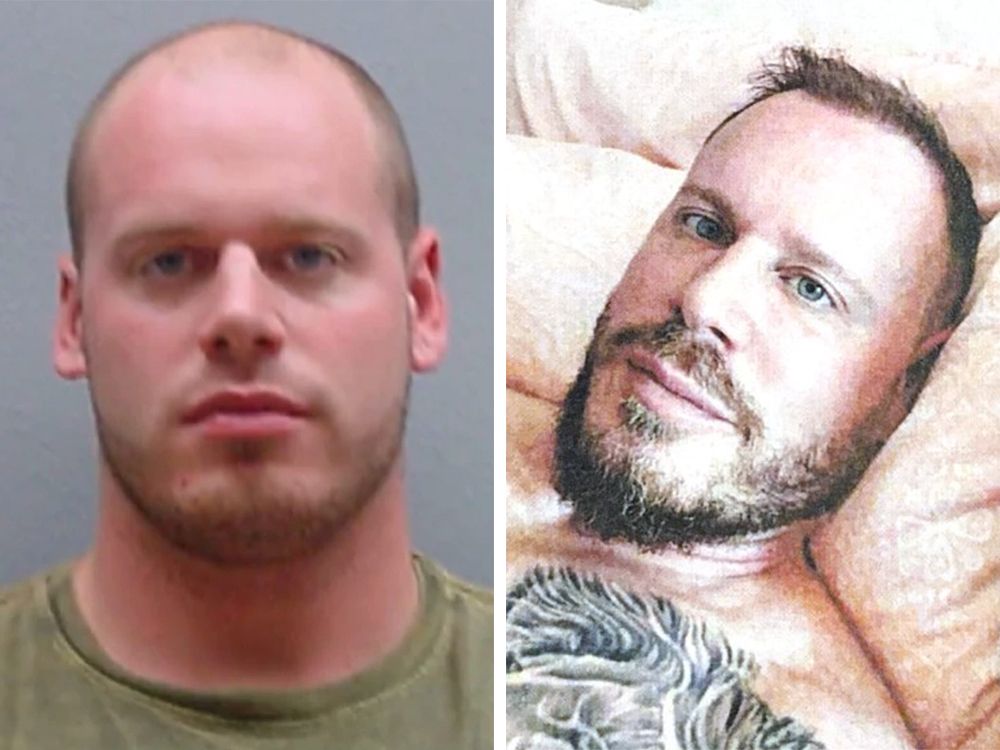
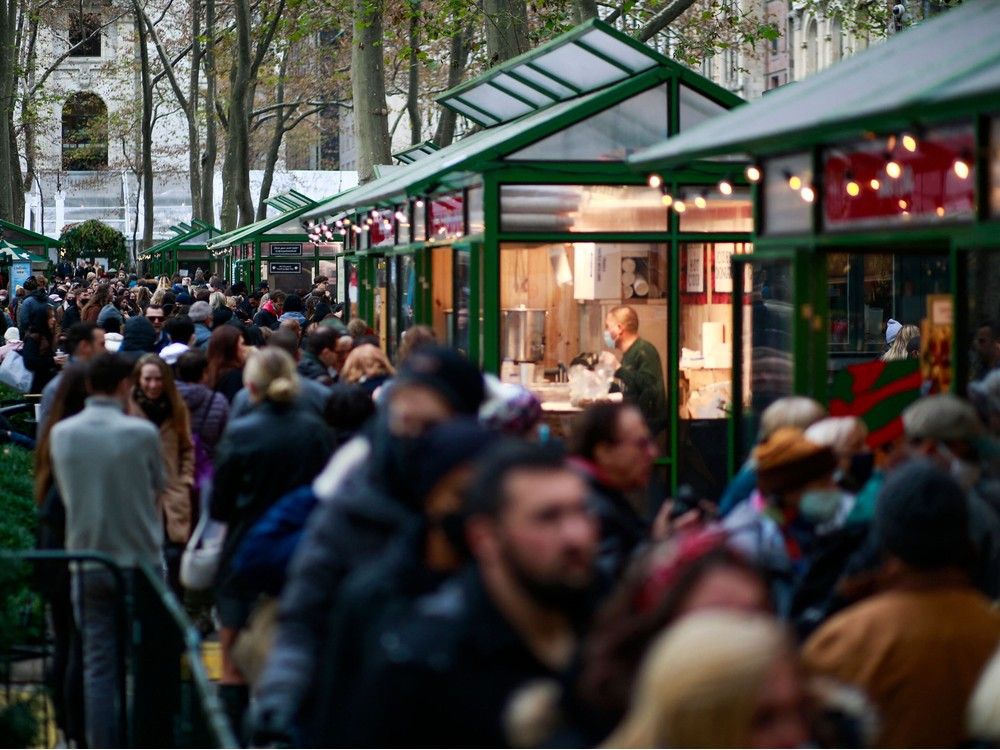






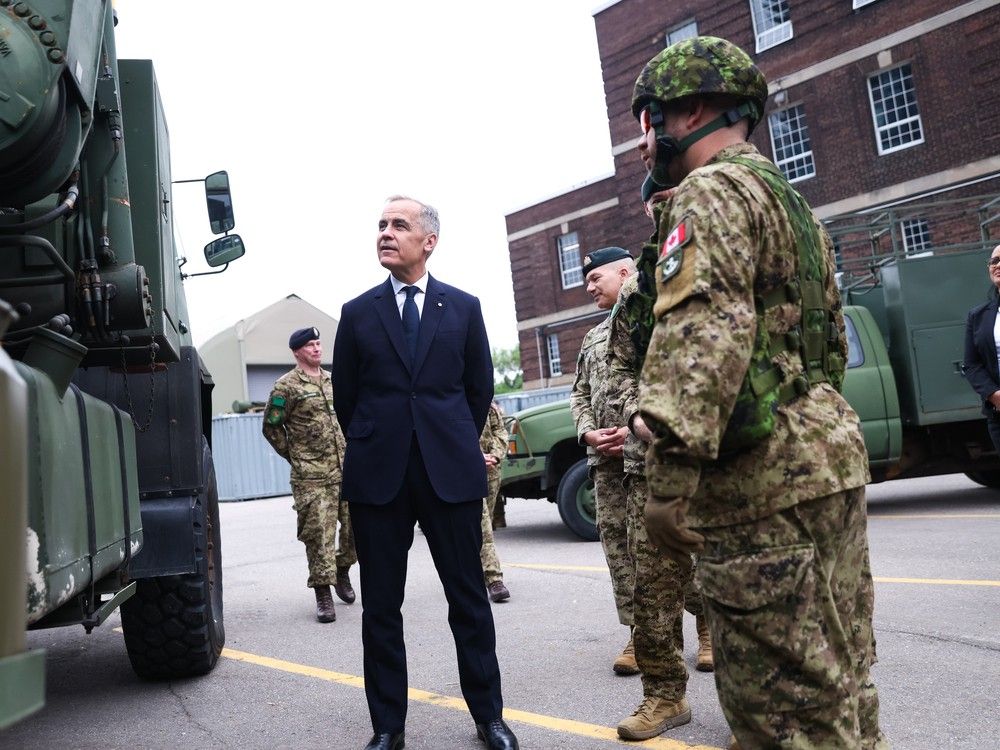


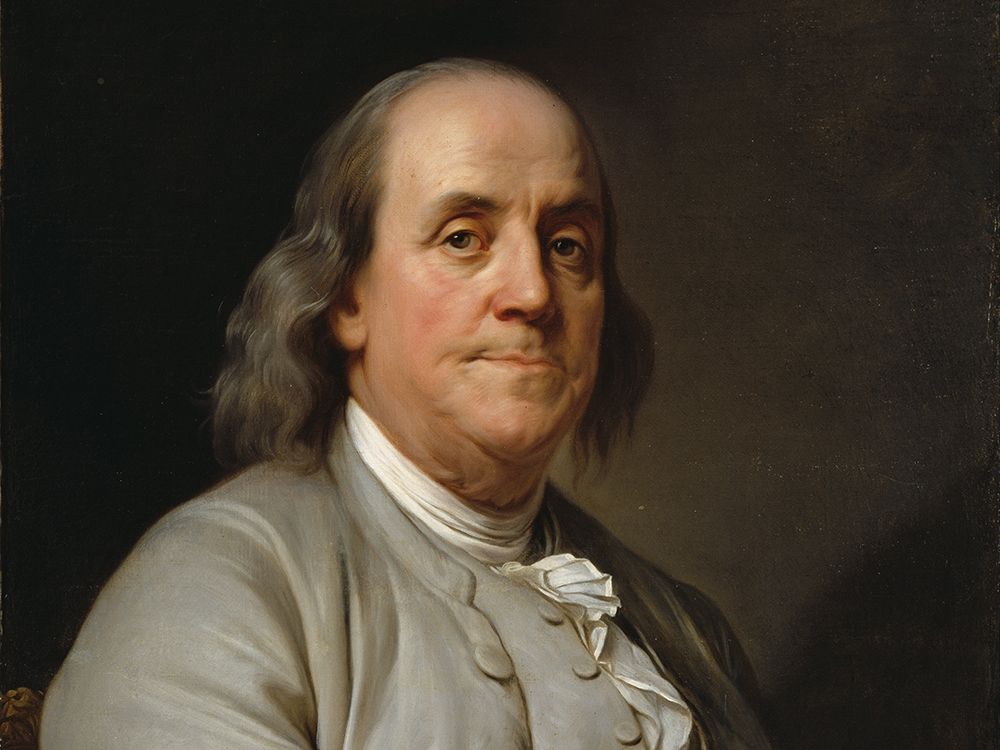


![Telephones at Doug Duffy's telephone museum in Belleville, Ont. who the wide variety of styles once available. [Photo By Peter J. Thompson/National Post] Telephones at Doug Duffy's telephone museum in Belleville, Ont. who the wide variety of styles once available. [Photo By Peter J. Thompson/National Post]](https://smartcdn.gprod.postmedia.digital/nationalpost/wp-content/uploads/2025/12/telephone-landline-technology-canada-vintage-phones-main-1.jpg)
